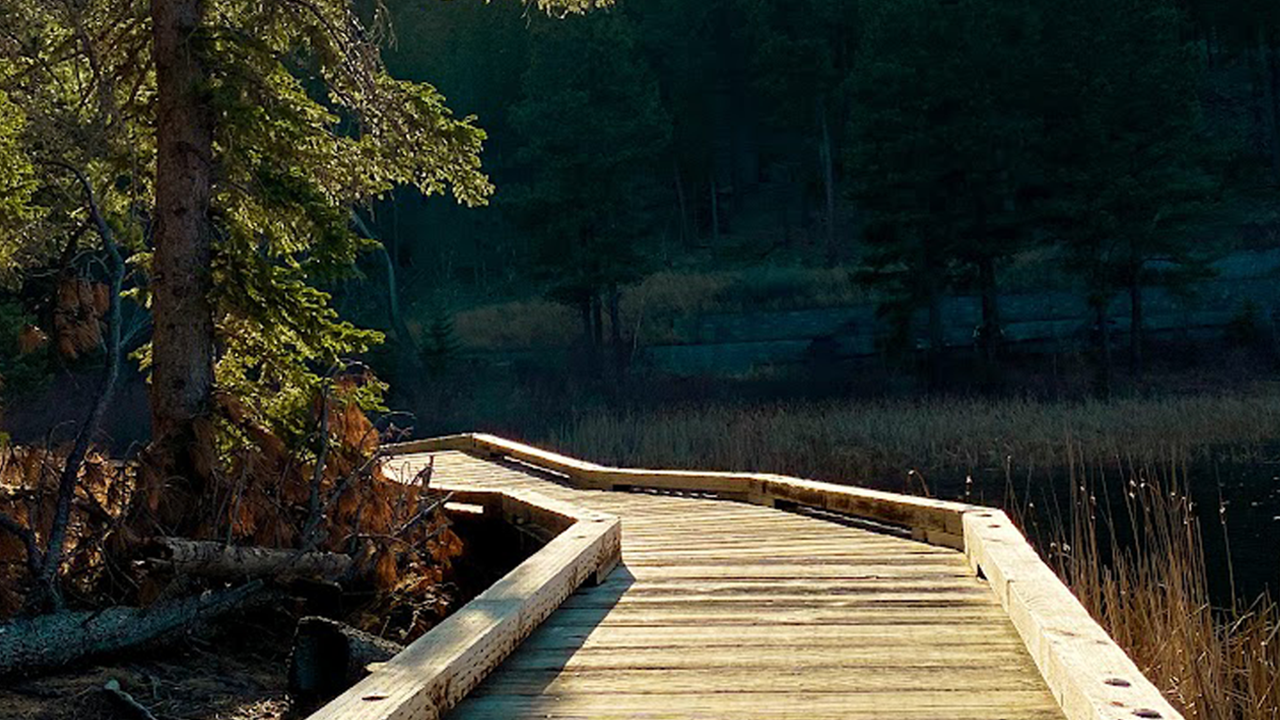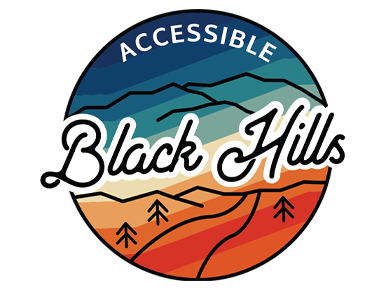Accessible Black Hills: Promoting, Elevating Access

In 2021, almost four million people visited the Black Hills. Those visitors contributed more than $300 million to South Dakota’s economy. There is a growing permanent population in the region, where more than 125,000 people call the Black Hills their home.
All visitors need to eat and sleep, and there’s no shortage of restaurants and hotels. But which ones are accessible to those with a mobility disability? What about outdoor destinations and convention facilities? What about gift shops, art galleries, bookstores and so many other businesses frequented by visitors, and by locals, too?
About 12% of the overall population has a mobility disability and most use a wheelchair or crutches. Nearly 11% live with serious hearing or vision issues.
Wouldn’t it be useful if information about access to businesses and destinations was available from a single source? Wouldn’t visitors who come to the Black Hills benefit from this type of advance knowledge?

Stine recognized that travelers are typically unfamiliar with accessibility conditions in unfamiliar places. She was made acutely aware of this situation when she and her mother faced barriers while vacationing with the rest of their family, including her dad and an older sister.
“I have muscular dystrophy,” explained Stine. “The disease started showing when I was four years old. I walked until I was 13.” Stine, now in her 30s, added that her mother also has the genetic disease.
“As I grew up,” Stine recalled, “I noticed some businesses were more aware than others about access for all.” The American Disabilities Act was new, she explained, and society was just starting to understand the importance of accommodating people with disabilities. Stine learned which businesses offer ramps, wide doorways, accessible bathrooms, low tables and other features that allow her visits.
After graduating from Stevens High School in Rapid City, Stine attended and graduated in 2014 from Black Hills State University, earning a degree in mass communications with an emphasis on graphic design. She then worked as a website designer, social media manager and marketing coordinator before taking the plunge to open her own advertising business, Vela Creative Company. That was in 2019.

Special emphasis was to deliver information to those planning to travel to the Black Hills. From her own experiences as a traveler, Stine knew that this knowledge would allow all visitors to better plan their vacations. She designed a website offering this information to both visitors and Black Hills residents. Her experience in advertising and marketing benefited this awareness campaign.
On the Accessibility Black Hills website, suggestions to improve access are described and businesses offering access are showcased. Stine especially enjoys highlighting locally owned businesses. She also solicits volunteers to survey area businesses. Using a checklist, the volunteers document accessibility features as well as identify areas needing improvement. Stine is always searching for local partners to help with all aspects of the organization, including spreading the word about Accessible Black Hills.
Stine has already performed countless site visits to help businesses improve access, and she assists businesses find funding to undertake improved access. She partnered with a local tourism promotion organization, Visit Rapid City, which resulted in a more comprehensive checklist for businesses to perform self-assessments.
“This project keeps growing,” Stine exclaimed. “I need to evolve the purpose of what we do and maintain our relevance.” One planned component of her growing service is to develop an app for hand-held devices that provides accessibility information businesses and people need. The app, produced in collaboration with Visit Rapid City, will also make it simpler for volunteers and the public to add useful information to the Accessible Black Hills website.
“I view myself as an entrepreneur,” said Stine. “Entrepreneurs solve problems. And that’s what we’re doing.”
To learn more about Accessible Black Hills, go to accessibleblackhills.com or contact Stine at [email protected].
This story was originally published in “South Dakota Possibilities 2023,” an annual publication by the University of South Dakota Center for Disabilities. Access the full issue at this link.
About the Center for Disabilities
The Center for Disabilities is part of a national network of federally designated centers known as University Centers for Excellence in Development Disabilities, Education, Research and Service (UCEDDS). The mission of the Center for Disabilities is to improve the lives of individuals with disabilities and their families across the state of South Dakota, the region and nationally. The Center for Disabilities carries out its diverse capacity-building efforts through clinical services, interdisciplinary training, continuing education, research, information dissemination and policy/advocacy work. Its work focuses on the strengths and contributions of people with disabilities, and works across multiple sectors including healthcare, education, mental health, and human services.



